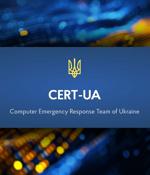Security News

The Computer Emergency Response Team of Ukraine (CERT-UA), part of the State Service of Special Communications and Information Protection (SSSCIP), has joined forces with the simulation training...

Once the war in Ukraine ends, Russia's offensive cyber capabilities will be directed towards other targets, Rik Ferguson, VP Security Intelligence for Forescout, predicted at IRISSCON on Thursday. Russia's attack force consists of "Hackers in uniform", cybercriminals and hacktivists congregating in various Telegram channels, but the nation is also working on engaging ever more younger people in their cyber offensive campaigns.

Microsoft's warning on Wednesday that the China-sponsored actor Volt Typhoon attacked U.S. infrastructure put a hard emphasis on presentations by cybersecurity and international affairs experts that a global war in cyberspace is pitting authoritarian regimes against democracies. Microsoft's notification pointed out that Volt Typhoon - which hit organizations in sectors spanning IT, communications, manufacturing, utility, transportation, construction, maritime, government and education - has been pursuing a "Living off the land" strategy focused on data exfiltration since 2021.

The Aspen Institute has published a good analysis of the successes, failures, and absences of cyberattacks as part of the current war in Ukraine: "The Cyber Defense Assistance Imperative Lessons from Ukraine." As a result, it is timely to assess how to provide organized, effective cyber defense assistance to safeguard the post-war order from potential aggressors.

It's a challenge for IT security chiefs because unstructured data's decentralized nature makes it harder to maintain effective and consistent security controls that govern access to it. "Concepts of best practice in data storage have evolved rapidly since the SolarWinds hack," says Kevin Noreen, Senior Product Manager - Unstructured Data Storage Security at Dell Technologies.

When it comes to 2023 threat predictions, Trellix anticipates spikes in geopolitically motivated attacks across Asia and Europe, hacktivism fueled by tensions from opposing political parties, and vulnerabilities in core software supply chains. "Analyzing current trends is necessary but being predictive in cybersecurity is vital. While organizations focus on near-term threats, we advise all to look beyond the horizon to ensure a proactive posture," said John Fokker, Head of Threat Intelligence, Trellix.

The survey, organized by security shop Venafi, questioned 1,100 security leaders. Hyperscrape "Requires the victim's account credentials to run using a valid, authenticated user session the attacker has hijacked, or credentials the attacker has already acquired," Google said.

One attack vector noticeably missing from both government and industry alerts is the personal digital lives of executives - the C-Suite, Board Members, and senior company leaders - with direct access to financial, proprietary and confidential information. Recently, skilled cybercriminals and nation states have strategically begun to bypass government and organizational security controls by attacking what CISOs and security teams cannot control: the online privacy, personal devices, and home networks of executives and their families.

It has been interesting to notice how unimportant and ineffective cyber operations have been in the Russia-Ukraine war. Russia launched a wiper against Ukraine at the beginning, but it was found...

Businesses are worrying about being caught in the crossfire of cyber warfare, according to research from Bitdefender - while industry figures warn that the gap between common-or-garden cyber threats and "Oh, look what nation states are doing" is becoming ever smaller. Bitdefender's latest report, titled 10 in 10, surveyed around 6,000 C-suite bods responsible for cyber security and found [PDF] "Over a fifth" of these said that cyber warfare was one of the most challenging topics they had to convince their colleagues to take seriously.